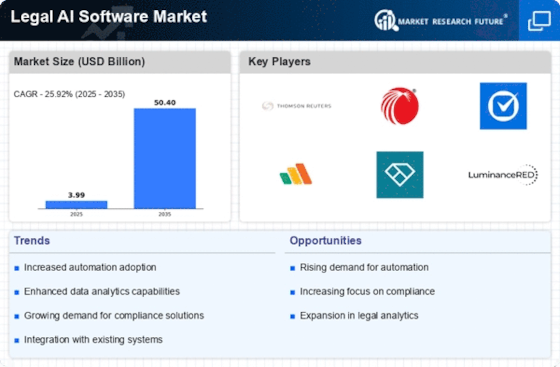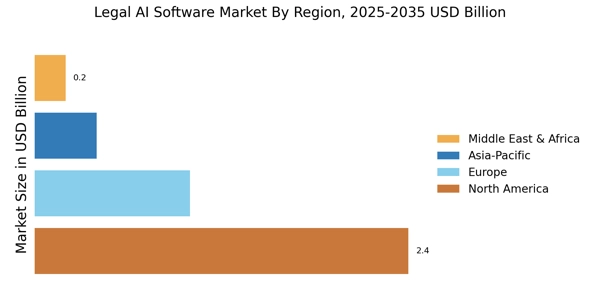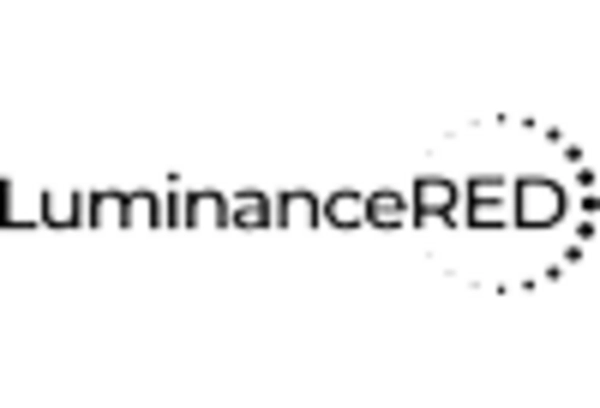Rising Client Expectations
The Legal AI Software Market is significantly influenced by rising client expectations. Clients are increasingly demanding faster and more transparent legal services, prompting firms to adopt AI technologies that enhance service delivery. Legal AI software can streamline communication, provide instant access to case information, and facilitate quicker responses to client inquiries. This shift towards client-centric services is reshaping the competitive landscape, as firms that leverage AI tools are likely to gain a competitive edge. The market is responding to this trend, with an anticipated increase in investment in AI solutions that cater to client needs, thereby driving growth in the industry.
Regulatory Compliance Needs
In the Legal AI Software Market, the necessity for regulatory compliance is a critical driver. Legal firms are under constant pressure to adhere to evolving regulations and standards. AI software can assist in ensuring compliance by automating the monitoring of legal changes and providing real-time updates. This capability is particularly valuable in sectors such as finance and healthcare, where compliance requirements are stringent. The market for legal AI solutions is expected to expand as firms recognize the importance of maintaining compliance while minimizing risks. The ability to leverage AI for compliance purposes may lead to a more proactive approach in managing legal obligations.
Growing Demand for Efficiency
The Legal AI Software Market is experiencing a notable surge in demand for efficiency among legal professionals. As firms strive to optimize their operations, the integration of AI tools has become increasingly appealing. Legal AI software can automate routine tasks, such as document review and contract analysis, thereby allowing attorneys to focus on more complex legal issues. This shift is reflected in the market, which is projected to grow at a compound annual growth rate of approximately 30% over the next five years. The drive for efficiency not only enhances productivity but also reduces operational costs, making it a compelling factor for law firms to adopt AI solutions.
Increased Investment in Legal Tech
The Legal AI Software Market is witnessing increased investment in legal technology, driven by the recognition of AI's potential to transform legal practices. Venture capital and private equity firms are increasingly funding legal tech startups that focus on AI solutions. This influx of capital is fostering innovation and the development of new AI applications tailored for the legal sector. As more firms recognize the value of investing in technology to enhance their services, the market for legal AI software is expected to expand. The trend of increased investment not only supports the growth of existing solutions but also encourages the emergence of new players in the industry.
Advancements in Natural Language Processing
Advancements in natural language processing (NLP) are propelling the Legal AI Software Market forward. NLP technologies enable legal AI systems to understand and interpret complex legal language, making them more effective in tasks such as contract analysis and legal research. As these technologies continue to evolve, they enhance the capabilities of legal AI software, allowing for more accurate and efficient processing of legal documents. The integration of advanced NLP features is likely to attract more law firms to adopt AI solutions, thereby contributing to the overall growth of the market. The potential for improved accuracy and reduced time spent on legal tasks is a compelling reason for firms to invest in these technologies.

















